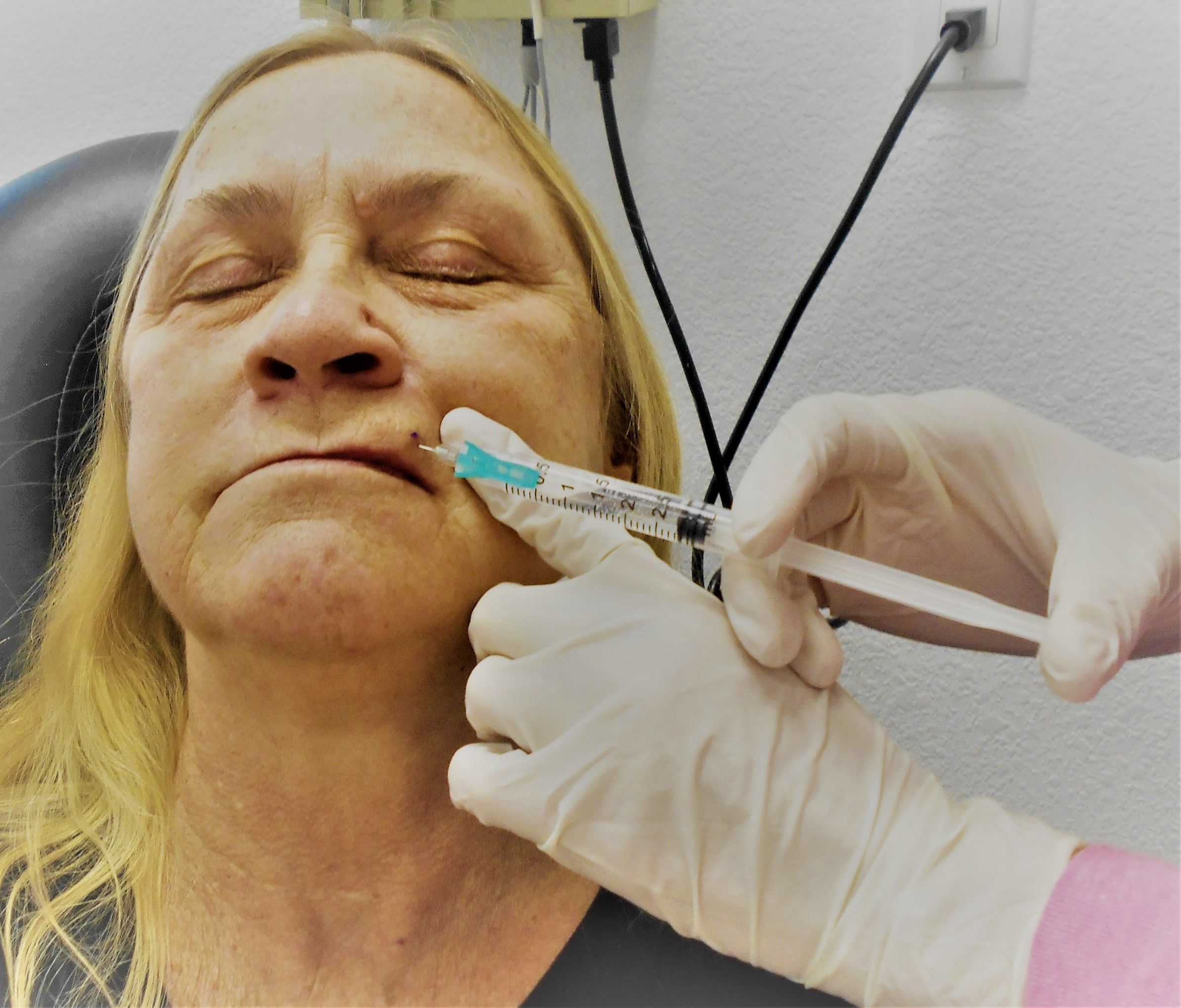- Case-Based Roundtable
- General Dermatology
- Eczema
- Chronic Hand Eczema
- Alopecia
- Aesthetics
- Vitiligo
- COVID-19
- Actinic Keratosis
- Precision Medicine and Biologics
- Rare Disease
- Wound Care
- Rosacea
- Psoriasis
- Psoriatic Arthritis
- Atopic Dermatitis
- Melasma
- NP and PA
- Skin Cancer
- Hidradenitis Suppurativa
- Drug Watch
- Pigmentary Disorders
- Acne
- Pediatric Dermatology
- Practice Management
- Prurigo Nodularis
- Buy-and-Bill
Article
Lidocaine Injection Training May Empower Your Team
Author(s):
More than 80% of medical assistants participating in the study said the new skill makes them feel more valuable.
A team of researchers at Dartmouth Health in Lebanon, New Hampshire wanted to explore the idea of medical assistants being able to help administer lidocaine. They conducted a study among 10 medical assistants with an extensive training plan to maximize the time of physicians in day-to-day procedures. The data and results of that study were presented during a during a rapid pearl session at the 2023 American College of Mohs Surgery Meeting in Seattle, Washington.1
Access to healthcare relies on the knowledge and training of every role in your institution or practice. According to the US Bureau of Labor Statistics, there are more than 700,000 medical assistants (MAs) across the country with significant projected growth.2 Dartmouth researchers wanted to test a training protocol and pilot study to prove that it is safe and effective for MAs to administer lidocaine. They also wanted to see if the implementation of this training improved clinical flow and increased MA job satisfaction.
The in-depth training consisted of a multi-step process that took 3 months on average for the 10 MAs in the study to complete. Here is the step-by-step training process they completed in that time:
1. MA completes a pre-injection survey
2. MA reviews skill verification checklist and protocol
3. MA observes 10 local anesthetic injections performed by provider with ability to ask questions
4. MA performs 10 local anesthetic injections in direct presence of a provider with feedback
5. Provider completes skill verification checklist for MA
6. MA performs minimum of 20 local anesthetic injections independently with close provider supervision
7. Nurse manager reviews data and gives final approval
8. MA completes post-injection survey
There were 0 safety events during the lidocaine training process for 10 MAs. A similar volume of lidocaine was administered by both MAs and MD providers. Other results to note include the 82% of staff who agree or strongly agree that the development of new skills makes them feel more valuable. Increased job fulfillment was reported by 100% of study participants.
In conclusion, the study shows MAs are able to safely, confidently, and effectively inject local anesthesia with close provider supervision. It improves clinic efficiency and workflow by giving physicians and nursesadditional time to complete tasks specific to their expertise. Researchers also noted during the rapid pearl session that several studies are emerging that show a positive correlation between increased staff satisfaction with increased responsibility.
References
1. Davis M, Sapp G, Patel D, Yazel C, et al. Lidocaine injection: A training protocol to ensure safety, improve efficiency, and foster staff satisfaction. Presented at the 2023 American College of Mohs Surgery Meeting; May 4-7, 2023; Seattle, WA.
2. Medical assistants. U.S. Bureau of Labor Statistics. April 25, 2023. Accessed May 8, 2023. https://www.bls.gov/oes/current/oes319092.htm.







